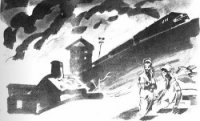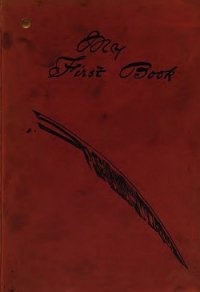Operation Nemesis: The Assassination Plot that Avenged the Armenian Genocide - Bogosian Eric (читать книги полностью без сокращений txt) 📗
The Protestant charitable organization Near East Relief raised $100 million in aid for orphans and displaced Armenians and other Christian refugees (mostly in Syria). But with the almost complete eradication of the Christians in Turkey, the missionary establishment, like the Tashnags, had to redefine its mandate. With almost no Armenians, Greeks, or Syriac Christians to attend to, attention had to be turned elsewhere. (A prominent Tashnag, Hovannes Katchznouni, first prime minister of the Armenian Republic, published a manifesto in 1923 titled The Armenian Revolutionary Federation [Dashnagtzoutiun] Has Nothing to Do Anymore!) As the U.S. mandate was debated in Congress, American Protestant missions modified and softened their support for the Armenian cause. In the end, the missions were forced to step lightly around the new Kemalist government. The missionary organizations owned a great deal of property in Turkey. They didn’t want it taken from them.3
Eleven days before Talat was killed, Warren G. Harding was sworn in as the twenty-ninth president of the United States. Harding’s landslide victory ushered in a deeply corrupt administration as well as a radically different approach to foreign policy. During his campaign, the handsome Republican nominee had promised a “return to normalcy,” casting aside the progressive style of previous administrations, particularly that of the ailing incumbent, Democrat Woodrow Wilson. Harding specifically rejected the concept of a League of Nations. During Harding’s brief tenure (he died in 1923, before he could complete his term of office), he would set an agenda in American domestic and foreign policy that endures to this day. Harding’s cronies and the likes of the Dulles brothers would make the needs of big business the first priorities of foreign policy. Big oil became priority number one.
By the end of World War I, all the major powers understood that the acquisition of petroleum resources was essential to preservation of the status quo. Lacking a secure source of oil, armies, navies, and air forces could not move. Without oil, commerce could not function. The tremendous reserves of the Near East, what we now call the Middle East, had to be secured for the West. When the World War I armistice was declared, British forces in Mesopotamia did not lay down their arms but illegally advanced northward, taking possession of the region surrounding Mosul, fairly sure that major oil reserves lay there. As treaties were hammered out, the British claimed all the Arab lands as part of their “mandate,” despite vigorous protestations from the Turkish government (not to mention the Arabs). Maps were marked off with red lines, and the territories were opened up for exploration and extraction of the “liquid gold.”
Harding’s cronies’ appropriation of the massive Teapot Dome oil rights and other domestic sites would trigger a major scandal in Washington. But this didn’t reduce what would eventually become an insatiable appetite for the world’s oil reserves. Allen Dulles would move to Paris to assist in the peace talks; there he would develop a close relationship with the British high commissioner of Turkey, Admiral Mark Bristol, and retired admiral William Colby Chester. All of these men were committed to creating strong economic ties with the new Republic of Turkey, seeing Kemal’s new nation as key to providing a base of operations in the Middle East.
The new men in power in Washington were savvy enough to allow bygones to be bygones as far as the crimes committed by the CUP during the war were concerned. Colby Chester’s characterization of the Armenian deportations was breathtaking in its deliberate ignorance: “There are no prejudices against Christians in Turkey, let alone killings of Christians. Massacres of the past were enormously exaggerated by prejudiced writers and speakers.” Referring to the deportations that killed hundreds of thousands of people, Chester made the case that the Turkish government had done the Armenians a favor by deporting them to the desert: “Those [Armenians] from the mountains were taken into Mesopotamia, where the climate is as benign as in Florida and California, whither New York millionaires journey every year for health and recreation. All this was done at great expense of money and effort.”4
Americans’ attitude toward intervention in Turkey would be influenced by propaganda and lobbying. Two films, Auction of Souls and the aborted Forty Days of Musa Dagh, illustrate the changing dynamic between Americans and Turkey.
Auction of Souls, or Ravished Armenia (1919), was based on the story of one young Armenian woman who had been captured by Muslims during the genocide. After the war, Aurora Mardiganian was “saved” through a program that existed between the end of World War I and the founding of Ataturk’s republic in 1923. During this time, missionaries were able to operate relatively freely in Anatolia, gathering up orphans or, in the case of abducted Armenian women, buying their freedom. The missions would literally purchase the young women outright from their captors. The price was one gold piece for each “soul.”
Sixteen-year-old Aurora was the most famous of all the liberated girls. She escaped capture, made it to Erzurum (around the same time Tehlirian was passing through), then on to Tiflis and finally Saint Petersburg. She immigrated to Oslo, where missionaries assisted her and then sent her to New York City.
In New York, Mardiganian was in the charge of Nora Wahn, publicity secretary of the American Committee for Armenian and Syrian Relief (or “Near East Relief,” renamed the Near East Foundation in 1930).5 Because of public interest in what had happened to the Armenians during the Great War, Mardiganian was interviewed by the New York Sun and the New York Tribune, whereupon she came to the attention of a screenwriter named Harvey Gates, who had her tell him the story of her trials. Gates and his wife, who would become Mardiganian’s legal guardians, arranged for the publication of her story in the United States and Britain. This narrative, Ravished Armenia,6 became a best-seller. The book was then sold to Hollywood. Renamed Auction of Souls, the silent black-and-white film, directed by Oscar Apfel, was released in 1919. Much of the film stock has been lost, but portions have survived and are available on the Internet.
Aurora was cast to play herself in the film version of her memoir, an unpleasant assignment for the traumatized young woman. On her first day on the set on a Santa Monica beach, she had an emotional meltdown when she suddenly found herself surrounded by a hundred extras dressed as Turkish military. Believing she was back in Turkey, she thought her nightmare was beginning all over again. She had only the vaguest idea what a movie was.
According to Anthony Slide, a film scholar who exhaustively researched the creation of the film and interviewed Mardiganian in 1988, the producers worked Aurora relentlessly, paying her only fifteen dollars a week. On one occasion she broke an ankle while shooting a scene. After it was bandaged, she was forced to continue filming. Upon completion of the film, which featured scenes of “ravishment” and massacre, the producers distributed it as a high-minded examination of the Armenian massacres. At the time, the American public was happy to embrace anti-Turk and pro-Armenian propaganda. The producers set up black-tie fund-raisers all around the country, using this sensational film as a centerpiece.
Aurora Mardiganian was compelled to make a personal appearance at each of these events, heightening the excitement. Although the film was racy, critics approached it as an earnest, socially conscious work and wrote approving notices. Aurora Mardiganian found a certain level of stardom; however, the pressure of the public appearances finally grew too much for her, and she ran away. Seven Aurora Mardiganian look-alikes were hired to make appearances along with showings of the film.




